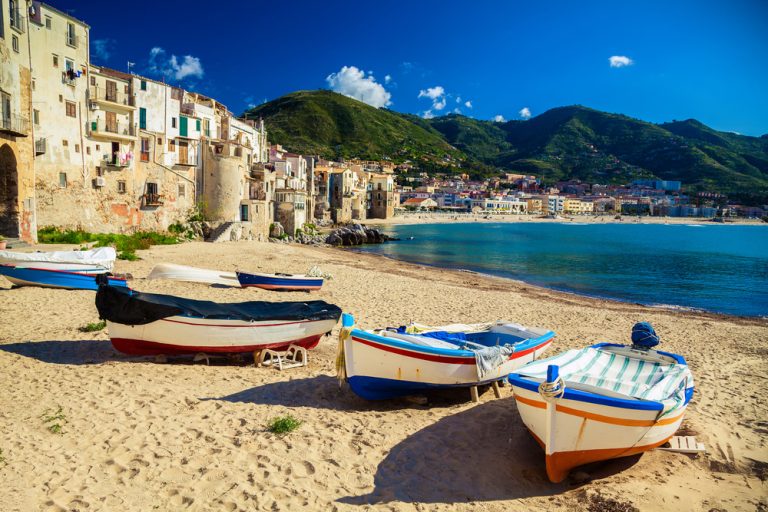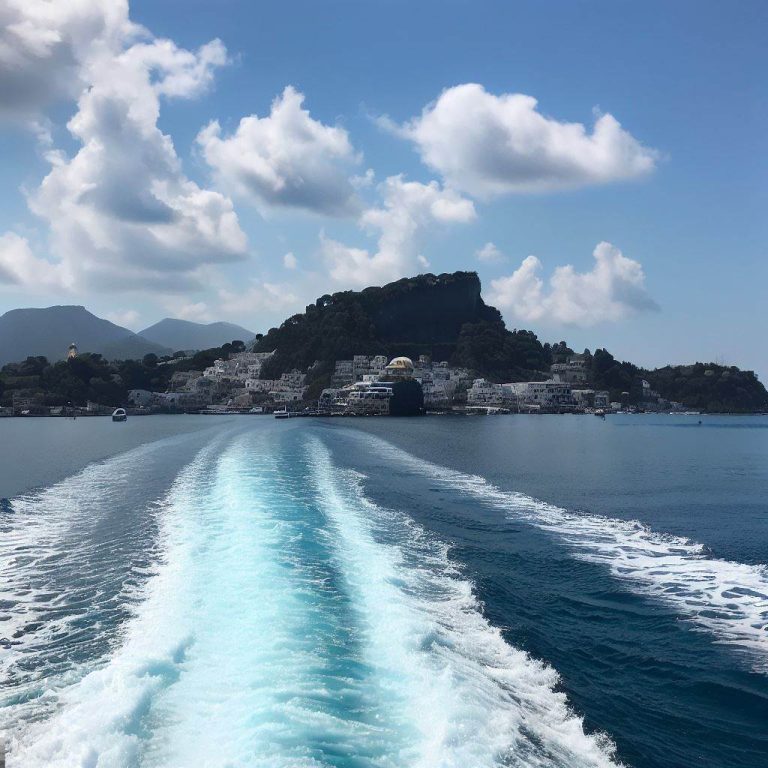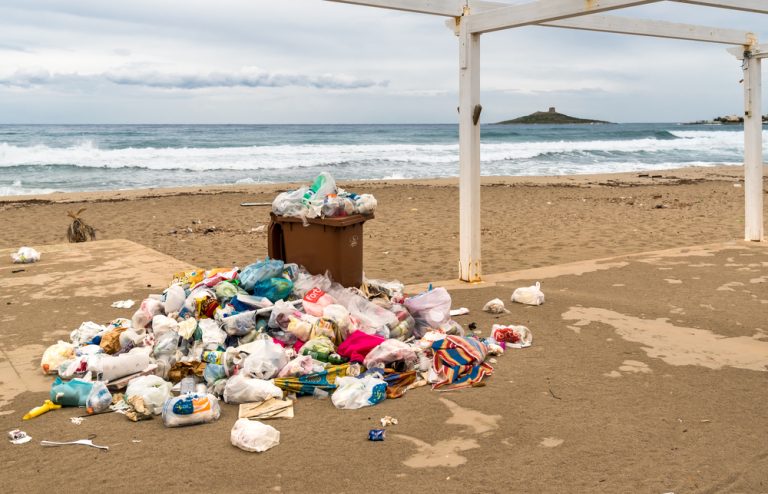Make Your Italian Adventure Even Better by Learning Essential Italian Phrases for Travel
This comprehensive guide offers useful Italian phrases for travel, cultural insights, and practical tips to make the most of your trip to Italy.
Learn essential Italian phrases for traveling in Italy, understand the cultural norms, and equip yourself with practical tips for an unforgettable Italian adventure.
Why Learn Basic Italian for Travel?
Learning the basics of the Italian language can add a whole new layer of authenticity to your travel experience. It opens doors to deeper cultural immersion, meaningful interactions, and a sense of independence while navigating through this beautiful country. Here are some compelling reasons why you should learn basic Italian for travel:
Cultural Immersion and Respect: Language is more than just a medium of communication; it’s the soul of a culture. Learning Italian phrases is a respectful nod to the rich heritage and culture of Italy. Plus, it enables you to immerse yourself in local experiences, understand cultural nuances, and appreciate the charm that Italy offers beyond tourist hotspots.
Enhanced Travel Experiences: Speaking the local language, even just a little, can enhance your travel experiences exponentially. It allows you to strike up conversations with locals, discover off-the-beaten-path attractions, understand Italian cuisine better, and foster a deeper connection with the country and its people.
Solving Unforeseen Circumstances: Travel often involves unexpected situations. Knowing how to ask for directions, seek help in emergencies, or convey dietary restrictions in Italian can make your journey smoother and less stressful.
Networking with Locals: Italians are known for their friendliness and warmth. Speaking Italian, even at a basic level, can serve as a great ice-breaker, allowing you to establish connections, share stories, and indulge in fascinating conversations with locals.
From ordering a classic Neapolitan pizza in Naples to negotiating a good bargain at a Florentine market, your basic Italian language skills will not just enrich your travel experience but also bring a sense of accomplishment and joy.
In the following sections, we will cover essential Italian phrases for various scenarios, making your Italian vacation truly memorable and unique.
Understanding Italian Culture and Etiquette
Familiarizing yourself with Italian culture and etiquette is crucial for a respectful and enriching travel experience. Here’s what you need to know:
Hand Gestures: Italians often use hand gestures to add emphasis to their conversations. Understanding common gestures can help you better grasp the nuances of Italian communication.
Politeness: Italians appreciate respect and good manners. Greet shopkeepers with a “Buongiorno” or “Buonasera”, and don’t forget to wish your fellow diners “Buon appetito” before meals.
Regional Differences: Italy is diverse, and accents, dialects, and customs can vary between regions. While Standard Italian is widely spoken, locals might use unique dialect words and phrases.
Understanding these cultural aspects will enhance your communication skills and overall travel experience. Let’s now move to some basic Italian greetings and general phrases.
Basic Italian Greetings and General Phrases
Knowing basic greetings and phrases in Italian can make your day-to-day interactions smoother and more enjoyable. Here are some you can start with:
- Hello/Good Day – “Buongiorno” (bwon-jor-no)
- Good Evening – “Buonasera” (bwo-na-se-ra)
- Goodbye – “Arrivederci” (ah-ree-veh-der-chee)
- Please – “Per favore” (per fa-voh-re)
- Thank you – “Grazie” (gra-tsie)
- You’re welcome – “Prego” (preh-go)
- Yes – “Sì” (see)
- No – “No” (no)
- Excuse me – “Scusa” (skoo-za)
- I’m sorry – “Mi dispiace” (mi dis-pee-ah-che)
Practice these phrases and use them in your interactions. Remember, pronunciation is key. Italians appreciate when visitors make an effort to communicate in their language, and using these phrases will surely earn you smiles.
In the next section, we will dive into essential Italian phrases for one of the most exciting parts of Italian travel – the dining experience!
Essential Italian Phrases for Dining
Italian cuisine is world-renowned, and dining in Italy is an experience not to be missed. Here are some phrases that will make ordering and dining in Italy a breeze:
- I would like… – “Vorrei…” (vor-ray)
- A table for two, please – “Un tavolo per due, per favore” (oon ta-volo per due, per fa-voh-re)
- The menu, please – “Il menu, per favore” (eel men-oo, per fa-voh-re)
- I am vegetarian/vegan – “Sono vegetariano/a / vegano/a” (sono veh-ge-tar-ee-ano/a / ve-ga-no/a)
- Do you have…? – “Avete…?” (av-et-e)
- Can I have the bill, please? – “Il conto, per favore” (eel con-to, per fa-voh-re)
- This is delicious! – “È delizioso!” (e de-lee-zyo-so)
- Could you recommend a local dish? – “Potrebbe consigliare un piatto locale?” (pot-reb-be con-see-gliar-e un piat-to lo-cale)
- What is today’s special? – “Qual è il piatto del giorno?” (qual e il piat-to del jour-no)
- I have a food allergy – “Ho un’allergia alimentare” (o un-al-ler-gee-a ali-men-tar-e)
- Do you have a children’s menu? – “Avete un menu per bambini?” (av-et-e un men-oo per bam-bini)
- A glass of water, please – “Un bicchiere d’acqua, per favore” (un bi-kye-re d’acqua, per fa-voh-re)
- More bread, please – “Più pane, per favore” (pew pan-e, per fa-voh-re)
- Is service included? – “Il servizio è incluso?” (il ser-vi-tzio e in-clu-so)
- Can I take the leftovers? – “Posso portare via gli avanzi?” (pos-so por-tar-e via gli avan-zi)
- I would like to reserve a table – “Vorrei prenotare un tavolo” (vor-ray pre-no-tar-e un ta-vo-lo)
- I don’t eat… – “Non mangio…” (non man-jio)
- Does this dish contain…? – “Questo piatto contiene…?” (ques-to piat-to con-tye-ne)
- We would like to pay separately – “Vorremmo pagare separatamente” (vor-rem-mo pa-gar-e sep-a-ra-ta-men-te)
- Do you serve breakfast/lunch/dinner? – “Servite colazione/pranzo/cena?” (ser-vi-te co-la-tzion-e/pran-zo/ce-na)
- I am full – “Sono sazio/a” (sono satz-io/a)
- It was a lovely meal – “Era un pasto delizioso” (era un past-o de-li-zio-so)
- Could you bring…? – “Potrebbe portare…?” (pot-reb-be por-tar-e)
Remember, when ordering wine, the Italians usually ask if you want red (rosso) or white (bianco). When in doubt, don’t hesitate to ask for recommendations! “Cosa consigli?” (What do you recommend?)
Essential Italian Phrases for Shopping
Italy is a shopper’s paradise, offering everything from high fashion to unique local crafts. Equip yourself with these phrases for a seamless shopping experience:
- How much does it cost? – “Quanto costa?” (quan-to cos-ta)
- Do you have this in another color/size? – “Avete questo in un altro colore/taglia?” (av-et-e ques-to in un al-tro co-lo-re/ta-glia)
- Can I try this on? – “Posso provarlo?” (pos-so pro-var-lo)
- I’m just looking, thank you – “Sto solo guardando, grazie” (sto solo guar-dan-do, gra-tsie)
- I’ll take this – “Prendo questo” (pren-do ques-to)
- Can I pay by credit card? – “Posso pagare con carta di credito?” (pos-so pa-gar-e con car-ta di cre-di-to)
- Is there a discount? – “C’è uno sconto?” (ce uno scon-to)
- Where is the fitting room? – “Dove è il camerino?” (do-ve e il ca-me-ri-no)
- Do you ship to…? – “Spedite a…?” (spe-di-te a)
- Is this handmade? – “È fatto a mano?” (e fat-to a mano)
- Could you wrap it as a gift, please? – “Potrebbe confezionarlo come un regalo, per favore?” (pot-reb-be con-fez-yon-ar-lo co-me un re-ga-lo, per fa-voh-re)
- I am looking for… – “Sto cercando…” (sto cher-can-do)
- Can I return it? – “Posso restituirlo?” (pos-so res-ti-tu-ir-lo)
- Is this made of…? – “È fatto di…?” (e fat-to di)
- Do you have anything cheaper? – “Avete qualcosa di più economico?” (av-et-e qual-co-sa di pew e-co-no-mi-co)
- Open/Closed – “Aperto/Chiuso” (a-per-to/kiu-so)
- Do you accept foreign currency? – “Accettate valuta straniera?” (ac-cet-ta-te va-lu-ta stra-nie-ra)
Remember, in Italy, it’s common to greet shop staff upon entering and thank them when leaving. These interactions can make your shopping experience more enjoyable and respectful.
In the next section, we will cover useful phrases for asking directions, which will come in handy when navigating Italian cities.
Essential Italian Phrases for Directions
Navigating in a new country can be challenging, but with these Italian phrases, you’ll be able to ask for and understand directions with ease:
- Where is…? – “Dove si trova…?” (do-ve si tro-va)
- Can you show me on the map? – “Può mostrarmi sulla mappa?” (puo mos-trar-mi su-lla map-pa)
- I’m lost – “Mi sono perso/a” (mi sono per-so/a)
- Is it far? – “È lontano?” (e lon-ta-no)
- Is it close? – “È vicino?” (e vi-ci-no)
- Go straight – “Vada dritto” (va-da drit-to)
- Turn left/right – “Giri a sinistra/destra” (gi-ri a sin-is-tra/des-tra)
- At the corner – “All’angolo” (al-lan-go-lo)
- In front of/Behind – “Davanti a/Dietro” (da-van-ti a/die-tro)
- I am looking for this address – “Sto cercando questo indirizzo” (sto cher-can-do ques-to in-dir-iz-zo)
- I’m looking for the train station – “Sto cercando la stazione ferroviaria” (sto cher-can-do la sta-tzion-e fer-ro-vi-a-ria)
- Where is the nearest pharmacy? – “Dove si trova la farmacia più vicina?” (do-ve si tro-va la far-ma-cia pew vi-ci-na)
- Can you help me find a hotel? – “Potete aiutarmi a trovare un hotel?” (po-tet-e aiu-tar-mi a tro-var-e un ho-tel)
- Is this the right way for…? – “È questa la strada giusta per…?” (e ques-ta la stra-da gius-ta per)
- How far is it to…? – “Quanto dista fino a…?” (quan-to dis-ta fi-no a)
- Where can I find a taxi stand? – “Dove posso trovare una stazione di taxi?” (do-ve pos-so tro-var-e una sta-tzion-e di taxi)
- Which bus goes to…? – “Quale autobus va a…?” (qua-le auto-bus va a)
- Excuse me, can you tell me where… is? – “Mi scusi, può dirmi dove si trova…?” (mi scu-si, pwo dir-mi do-ve si tro-va)
Remember, Italians are known for their hospitality. Don’t hesitate to ask if you need help – they’ll likely go out of their way to assist you.
In the next section, we will cover some phrases to handle emergencies and health issues.
Essential Italian Phrases for Health and Emergencies
No one anticipates emergencies while traveling, but it’s good to be prepared. Here are 20 phrases that might be useful in case of health issues or emergencies:
- I need a doctor – “Ho bisogno di un dottore” (ho bi-zog-no di un dot-to-re)
- I’m not feeling well – “Non mi sento bene” (non mi sen-to be-ne)
- I have a fever – “Ho la febbre” (ho la feb-bre)
- Where is the hospital? – “Dove si trova l’ospedale?” (do-ve si tro-va l’os-pe-da-le)
- I have an allergy to… – “Ho un’allergia a…” (ho un’al-ler-gia a)
- Can you call an ambulance? – “Può chiamare un’ambulanza?” (puo chia-mar-e un’am-bu-lan-za)
- I’ve lost my passport – “Ho perso il mio passaporto” (ho per-so il mio pas-sa-por-to)
- I need a pharmacy – “Ho bisogno di una farmacia” (ho bi-zog-no di una far-ma-cia)
- I need the police – “Ho bisogno della polizia” (ho bi-zog-no del-la po-li-zia)
- Is it safe here? – “È sicuro qui?” (e si-cu-ro qui)
- Can you help me? – “Puoi aiutarmi?” (puoi aiu-tar-mi)
- Where can I find a dentist? – “Dove posso trovare un dentista?” (do-ve pos-so tro-va-re un den-tis-ta)
- I am diabetic – “Sono diabetico/a” (so-no dia-be-ti-co/a)
- I am pregnant – “Sono incinta” (so-no in-cin-ta)
- I have travel insurance – “Ho un’assicurazione di viaggio” (ho un’as-si-cu-ra-zion-e di via-ggio)
- I feel dizzy – “Mi sento stordito/a” (mi sen-to stor-di-to/a)
- I’ve been robbed – “Sono stato/a derubato/a” (so-no sta-to/a de-ru-ba-to/a)
- It’s an emergency – “È un’emergenza” (e un’em-er-gen-za)
- Can you recommend a good doctor? – “Puoi consigliare un buon dottore?” (puoi con-si-gliar-e un buon dot-to-re)
- Where is the nearest clinic? – “Dove si trova la clinica più vicina?” (do-ve si tro-va la cli-ni-ca pew vi-ci-na)
By learning these phrases, you’ll be equipped to handle a variety of situations that may arise during your travels. In the next section, we will share some cultural and social phrases that will make your interaction with the locals more pleasant and enriching.
Essential Italian Phrases for Social Interaction and Culture
Familiarizing yourself with Italian culture and social norms can enrich your travel experience. Here are some phrases that will help you blend in and interact socially:
- Nice to meet you – “Piacere di conoscerti” (pia-ce-re di co-no-scer-ti)
- How are you? – “Come stai?” (co-me stai)
- My name is… – “Mi chiamo…” (mi chi-a-mo)
- What’s your name? – “Come ti chiami?” (co-me ti chi-a-mi)
- Can you speak English? – “Parli inglese?” (par-li in-gle-se)
- I don’t understand – “Non capisco” (non ca-pis-co)
- I’m from… – “Vengo da…” (ve-go da)
- I’m sorry – “Mi dispiace” (mi dis-pia-ce)
- What time is it? – “Che ore sono?” (che o-re so-no)
- Can I take a photo? – “Posso fare una foto?” (pos-so fa-re una fo-to)
- Do you have Wi-Fi? – “Avete Wi-Fi?” (av-et-e Wi-Fi)
- I love Italy – “Amo l’Italia” (a-mo l’I-ta-lia)
- Thank you for your help – “Grazie per il tuo aiuto” (gra-tzie per il tuo aiu-to)
- It’s beautiful – “È bellissimo” (e bel-lis-si-mo)
- Congratulations – “Complimenti” (com-pli-men-ti)
- What’s happening? – “Cosa succede?” (co-sa suc-ce-de)
- Could you please speak slower? – “Potrebbe parlare più lentamente, per favore?” (pot-reb-be par-lar-e pew len-ta-men-te, per fa-vo-re)
- Can I use the bathroom? – “Posso usare il bagno?” (pos-so u-sa-re il ba-gno)
- Good morning/afternoon/evening/night – “Buongiorno/Buon pomeriggio/Buonasera/Buonanotte” (buon-gior-no/buon po-me-rig-gio/buona-se-ra/buo-na-not-te)
- Can you recommend a good place to eat/visit? – “Puoi consigliare un buon posto dove mangiare/visitare?” (puoi con-si-gliar-e un buon po-sto do-ve man-giar-e/vi-si-tar-e)
These phrases should enable you to navigate Italian social and cultural environments with ease. Remember, Italians appreciate it when you make an effort to speak their language, even if you make mistakes. Enjoy your journey and immerse yourself in the culture!
Common Italian Gestures and Non-Verbal Communication
While learning Italian phrases is important, understanding common gestures and non-verbal cues can be just as valuable for smooth communication. Here are some key aspects to consider:
- Hand Gestures: Italians are known for their expressive hand gestures. They have a variety of gestures for expressing confusion, perfection, fear, disagreement, and many other emotions. Observing and mimicking these gestures can enhance your communication.
- Proximity: Italians tend to stand closer to each other when talking than people from some other cultures. Don’t be surprised if personal space bubbles seem smaller in Italy.
- Eye Contact: Maintaining eye contact during conversation is viewed as a sign of honesty and attentiveness. Avoiding eye contact can be interpreted as disinterest.
- Cheek Kissing: When meeting someone familiar, it’s common to kiss on both cheeks starting from the left. However, this is typically among close friends and relatives, so a handshake is appropriate when meeting someone for the first time.
- Body Language: Similar to hand gestures, body language is also important in Italian communication. A relaxed stance indicates comfort and openness, while crossed arms might signal defensiveness or disagreement.
- Voice and Tone: Italians often speak loudly and passionately, especially during heated discussions. This isn’t typically a sign of anger, but of involvement and eagerness in the conversation.
Understanding these elements of non-verbal communication can complement your use of Italian phrases and contribute to a more authentic and immersive travel experience.
Practical Tips for Traveling in Italy
To conclude this guide, here are some practical tips to consider during your visit to Italy. These are just as crucial as knowing basic Italian phrases and understanding cultural norms:
- Punctuality: Italians have a more relaxed approach to time than some other cultures, especially in the southern part of the country. Don’t be surprised if things don’t start exactly on time.
- Tipping: Service charge is often included in your restaurant bill, but it’s still common to leave a small tip if the service was good. However, tipping is not expected in bars or for taxi drivers.
- Dress Code: Italians take pride in their appearance and tend to dress smartly. In some churches and religious sites, there’s a strict dress code – shoulders and knees should be covered.
- Meal Times: Italians typically have lunch around 1pm-2pm and dinner around 8pm-9pm. Many restaurants close in the afternoon, so plan accordingly.
- Local Cuisine: Every region in Italy has its own unique dishes and food specialties. Try to sample local cuisine wherever you visit.
- Stay Hydrated: Tap water is safe to drink in Italy. Refill your bottle from public water fountains, especially during the hot summer months.
- Public Transport: Public transportation in Italy is generally reliable. Tickets must be validated before or upon boarding, so look for a ticket validation machine.
- Safety: Italy is generally safe for travelers, but be cautious of your belongings in crowded tourist areas to avoid pickpockets.
Remember, the best way to learn is through immersion. Engage with locals, practice your Italian phrases, and make the most out of your Italian adventure!
Conclusion: Experience Italy Like a Local
Armed with these useful Italian phrases and practical tips, you’re now better prepared to embark on your Italian adventure. Language is more than a tool for communication; it’s a bridge that connects you with the culture, customs, and the people of a place.
By taking the time to learn basic Italian phrases for travel, you’re not just enhancing your travel experience but also showing respect and appreciation for the Italian culture. Remember, it’s okay to make mistakes and stumble over words – locals will appreciate your efforts to connect in their native tongue.
Lastly, immerse yourself in the Italian culture, savor the regional cuisines, interact with the locals, and make unforgettable memories. Italy is a rich tapestry of art, history, cuisine, and natural beauty – and now, you’re ready to experience it all like a local. Buon viaggio!







